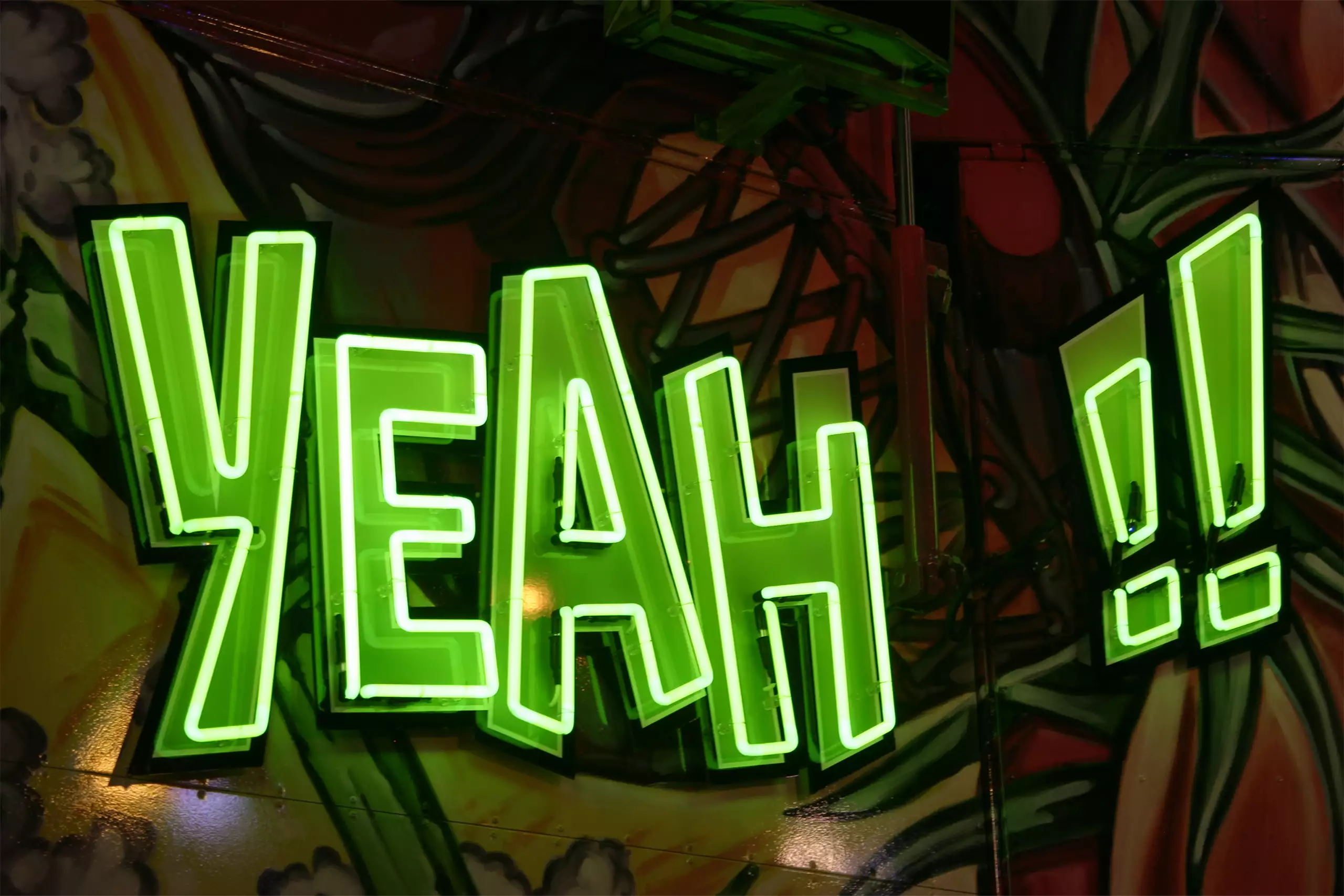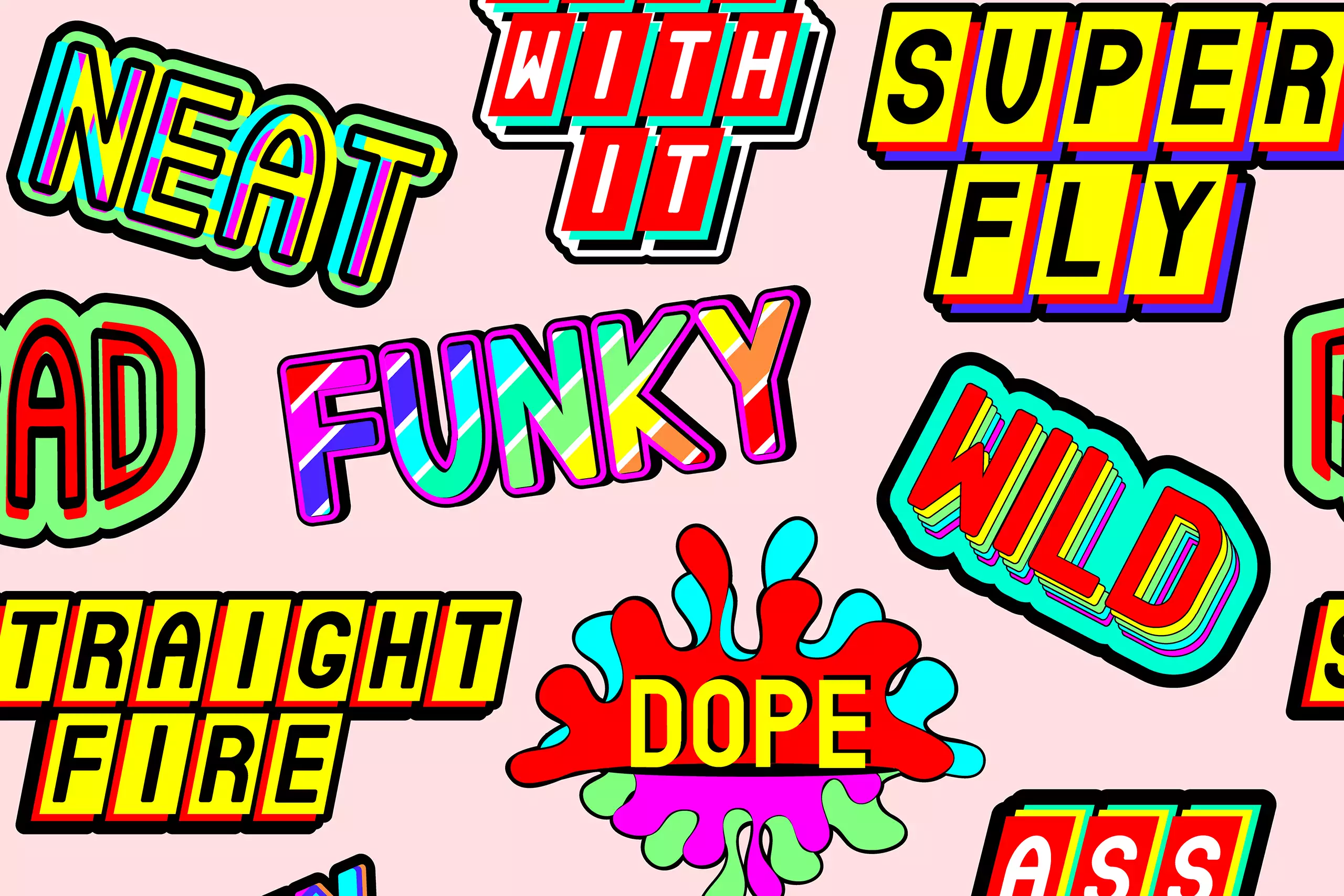Table of Contents
- The Ever-Evolving World of Slang
- What Exactly is 'Eiffel Tower Slang'? Unveiling the Meaning
- Tracing the Origins: Where Did 'Eiffel Tower Slang' Come From?
- The Cultural Context and Usage of 'Eiffel Tower Slang'
- Understanding Slang: More Than Just Words
- The Broader Implications of 'Eiffel Tower Slang' on Communication
- Mastering Slang: A Guide to Understanding Informal Language
- The Future of Slang and Its Continuous Evolution
The Ever-Evolving World of Slang
Slang words are defined as words and phrases used informally in any language. They are the linguistic equivalent of fashion trends, constantly changing, adapting, and reflecting the current zeitgeist. From the "bee's knees" of the 1920s to the "lit" of today, slang serves multiple purposes: it can foster group identity, express attitudes, and provide a quick, often humorous, way to communicate complex ideas. The internet, in particular, has become a hotbed for slang creation and dissemination, giving rise to terms like "lol," "brb," and "bff," which quickly become part of the digital lexicon. Understanding these informal terms is not just about keeping up; it's about truly connecting with how people speak and think in various social contexts. The rapid pace of modern communication, particularly through texting and social media, has accelerated the lifecycle of slang. A term can emerge, gain popularity, and fade into obscurity within a remarkably short period. This constant flux means that what's "in" today might be "out" tomorrow, making the study of slang a fascinating, albeit challenging, endeavor. It highlights the organic nature of language, demonstrating how it adapts to the needs and creative impulses of its speakers. Every new slang term, including something as specific as "Eiffel Tower slang," offers a window into the cultural landscape from which it springs.What Exactly is 'Eiffel Tower Slang'? Unveiling the Meaning
When encountering a term like "Eiffel Tower slang," one might initially conjure images of the iconic Parisian landmark, perhaps thinking of something elegant or romantic. However, the reality of this particular slang term is far removed from such notions. In the realm of informal, often explicit, language, "Eiffel Tower slang" refers to a specific sexual act involving three individuals. Its use is almost exclusively found in adult contexts and conversations where such explicit topics are openly discussed. The term's power lies in its metaphorical cleverness, taking a widely recognized symbol and repurposing it to describe a very particular physical arrangement. This is a common characteristic of effective slang: it uses existing imagery or concepts to convey new, often taboo, meanings in a concise and memorable way. While not a term you'd find in a standard dictionary, its meaning is surprisingly consistent across various subcultures where it is used.The Core Definition and Its Nuances
At its core, "Eiffel Tower slang" describes a sexual act where two individuals perform oral sex on a third individual simultaneously. The "Eiffel Tower" analogy comes from the visual representation of the two individuals kneeling or positioned in such a way that their bodies form the two "legs" of the tower, with the third individual standing or positioned between them, representing the central structure. It's a vivid, if crude, metaphor that makes the act instantly recognizable to those familiar with the term. It's important to note that like many slang terms, "Eiffel Tower slang" is almost exclusively used in informal, often vulgar, contexts. It's not a medical or technical term, nor is it typically used in mainstream media unless explicitly referencing adult themes. Its primary function is within specific social circles or online communities where explicit sexual discussions occur. Understanding this nuance is crucial for anyone encountering the term, as misinterpreting its context could lead to significant social awkwardness or misunderstanding.Why the Name 'Eiffel Tower'? Visual Metaphor in Slang
The choice of "Eiffel Tower" for this particular slang term is a testament to the human tendency to use visual metaphor to describe complex or taboo subjects. The iconic structure, with its wide base tapering upwards, provides a clear and immediate visual analogy for the physical positioning of the individuals involved in the act. This kind of metaphorical naming is prevalent in slang, where abstract concepts or actions are often described using concrete, relatable images. Think of terms like "couch potato" or "head in the clouds" – they paint a picture that instantly conveys meaning. In the case of "Eiffel Tower slang," the metaphor is particularly potent because the Eiffel Tower itself is a globally recognized symbol. By associating an explicit act with such a well-known image, the slang term achieves both memorability and a certain level of descriptive efficiency. It allows for a quick, albeit vulgar, communication of a specific scenario without needing lengthy explanations. This clever linguistic shortcut is precisely why many slang terms, even the most explicit ones, manage to persist and spread within their respective communities.Tracing the Origins: Where Did 'Eiffel Tower Slang' Come From?
Pinpointing the exact origin of most slang terms, including "Eiffel Tower slang," is notoriously difficult. Unlike formal language, which is often documented and codified, slang emerges organically from informal conversations, subcultures, and communities. It's a grassroots phenomenon, often spreading by word of mouth, or more recently, through online forums, chat rooms, and social media. There's rarely a single inventor or a definitive "first use" date. However, we can infer some general characteristics about its likely genesis. Terms like "Eiffel Tower slang" often originate within specific subcultures where explicit sexual topics are discussed openly, such as adult entertainment communities, certain online forums, or even within close-knit social groups. The need for a concise, descriptive, and perhaps slightly humorous (to its users) term for a particular act would drive its creation. It's a linguistic innovation born out of necessity and shared experience, much like how internet acronyms like "lol" or "brb" arose from the need for quick communication in online chats. The term likely gained traction because of its vivid and easily understandable visual metaphor, making it simple to convey its meaning without explicit drawings or lengthy descriptions.The Cultural Context and Usage of 'Eiffel Tower Slang'
The usage of "Eiffel Tower slang" is deeply embedded within specific cultural contexts. It's not a term you would expect to hear in everyday conversation, academic discourse, or mainstream news. Its habitat is primarily informal settings where discussions about sex are common and explicit language is accepted. This includes certain online communities, adult entertainment industries, and private social circles. Understanding this context is paramount, as using such a term outside its appropriate setting can lead to significant social repercussions, from offense to outright misunderstanding. Like any slang term, "Eiffel Tower slang" serves as a form of linguistic shorthand. Within its intended audience, it efficiently communicates a complex idea with just a few words. For those outside this specific cultural sphere, however, the term remains obscure or, if its meaning is inferred, potentially shocking. This highlights the exclusionary nature of some slang – it creates an "in-group" and an "out-group," where shared understanding signifies belonging.Usage in Modern Media and Pop Culture
While "Eiffel Tower slang" itself is unlikely to appear in mainstream, family-friendly media, the *concept* of explicit slang and its integration into certain aspects of pop culture is undeniable. Adult-oriented films, television shows, and music may use or allude to such terms, often for shock value, comedic effect, or to authentically portray specific characters or subcultures. When it does appear, it's typically within a context that clearly signals its adult nature. The prevalence of explicit content online, particularly on platforms dedicated to adult entertainment, also contributes to the dissemination and understanding of terms like "Eiffel Tower slang." These platforms often serve as de facto dictionaries for such terms, where visual examples reinforce the verbal descriptions. This exposure, even if indirect for many, helps solidify the meaning of such terms within the broader informal lexicon, even if they remain outside the bounds of polite conversation.Navigating Conversations: When and Where It Appears
Knowing when and where "Eiffel Tower slang" might appear is crucial for navigating modern communication. Primarily, you would encounter this term in: * **Adult-themed online forums and communities:** Websites, chat rooms, and social media groups dedicated to discussing sexual topics. * **Adult entertainment content:** Films, videos, and literature where explicit acts are depicted or described. * **Highly informal and private conversations:** Among individuals who share a common understanding and comfort level with explicit language. It is highly improbable to encounter "Eiffel Tower slang" in professional settings, academic discussions, news reports, or general public discourse. Using it in such contexts would be considered inappropriate, unprofessional, and potentially offensive. The key takeaway is that context is king; understanding the audience and setting is paramount before employing or even acknowledging such a term. Just as you wouldn't use "lmao" in a formal business email, "Eiffel Tower slang" has its very specific, limited domain of usage.Understanding Slang: More Than Just Words
Beyond the explicit nature of "Eiffel Tower slang," its existence underscores a broader truth about language: slang is a powerful tool for social bonding and identity formation. Every group, from teenagers to professionals in niche fields, develops its own jargon or slang that facilitates quicker, more nuanced communication among its members. This shared vocabulary acts as a badge of belonging, signaling who is "in" and who is "out." The study of slang, therefore, isn't just about memorizing definitions; it's about cultural anthropology. It reveals insights into the values, humor, and preoccupations of different communities. When a term like "Eiffel Tower slang" becomes widely understood within a certain demographic, it speaks volumes about the types of conversations and content prevalent within that group. It reminds us that language is a living entity, shaped by its users to meet their evolving communicative and social needs. From "lol" to "bff," each piece of slang tells a story about its users.The Broader Implications of 'Eiffel Tower Slang' on Communication
The presence of explicit slang terms like "Eiffel Tower slang" in the linguistic landscape has several broader implications for communication. Firstly, it highlights the ongoing tension between formal and informal language. While formal language aims for clarity and universality, slang often prioritizes brevity, group identity, and sometimes, shock value. This divide means that effective communication requires a keen awareness of one's audience and the appropriate register of language to employ. Misusing slang can lead to miscommunication, offense, or simply being misunderstood. Secondly, the existence of such terms underscores the role of language in expressing and reinforcing social boundaries. Slang can be a barrier to entry for outsiders, creating a sense of exclusivity among those who understand it. This can be both a positive (fostering strong in-group bonds) and a negative (excluding or alienating others). For educators, parents, or anyone interacting with diverse groups, understanding the existence and function of such slang, even without using it, is crucial for effective dialogue and cultural literacy. It's a reminder that language is never neutral; it carries social and cultural weight.Mastering Slang: A Guide to Understanding Informal Language
Given the constant evolution of language, "mastering" slang is less about memorizing every term and more about developing a keen sense of linguistic awareness and adaptability. Understanding terms like "Eiffel Tower slang" is part of a broader skill set: the ability to decipher informal language, recognize its context, and understand its social function. This skill is increasingly vital in a world where communication is dominated by fast-paced digital interactions. Just as you might learn the definition of "wym" (what you mean) or "imao" (in my arrogant opinion) to navigate texting conversations, approaching more explicit slang terms requires a similar analytical mindset, albeit with greater caution regarding usage. The goal is not to adopt every slang term into your personal vocabulary, but to comprehend their meaning when encountered, thereby enhancing your overall linguistic competence and cultural understanding.Tips for Deciphering New Slang Terms
For those looking to stay abreast of the ever-changing world of slang, here are some practical tips that apply to all informal terms, from "lol" to "Eiffel Tower slang": * **Context is King:** Always pay attention to the surrounding words, the speaker, and the situation. The context often provides the strongest clues to a slang term's meaning. For instance, the context of an adult forum will immediately signal a different type of slang than a gaming forum. * **Observe Usage Patterns:** Notice how and when a term is used by native speakers. Who uses it? In what situations? What are the reactions? * **Consult Online Resources (with caution):** Websites dedicated to slang definitions (like user-generated dictionaries) can be helpful. However, always cross-reference and be aware that definitions can vary and some sources may not be entirely reliable or may contain offensive content. * **Don't Be Afraid to Ask (Appropriately):** If you're in a comfortable setting with trusted individuals, it's perfectly fine to politely ask for clarification on a term you don't understand. Frame it as a genuine interest in language. * **Recognize Metaphor and Analogy:** Many slang terms, including "Eiffel Tower slang," rely on metaphorical connections. Try to identify the underlying image or concept being referenced. * **Stay Curious:** Maintain an open mind about language and its evolution. The more you engage with different forms of communication, the better you'll become at understanding informal speech.The Future of Slang and Its Continuous Evolution
The journey through "Eiffel Tower slang" and its place within the broader linguistic landscape reveals a fundamental truth: language is a living, breathing entity, constantly adapting to the needs and creativity of its users. Slang, in particular, is a testament to this dynamism, acting as a barometer of cultural shifts, technological advancements, and social trends. As long as humans communicate, new slang will emerge, reflecting the unique experiences and expressions of each generation. The digital age has only accelerated this process, making the evolution of slang more rapid and widespread than ever before. From internet acronyms like "lmao" to highly specific and explicit terms like "Eiffel Tower slang," the informal lexicon continues to expand, challenge, and redefine the boundaries of communication. Understanding this ongoing evolution is not just an academic exercise; it's a vital skill for navigating the complexities of modern social interaction and truly comprehending the rich tapestry of human expression.In conclusion, "Eiffel Tower slang" is far more than just a crude term; it's a fascinating example of how language adapts, using vivid metaphors to convey specific meanings within particular social contexts. While its explicit nature limits its appropriate usage, understanding its definition and the cultural forces that gave rise to it offers valuable insights into the broader world of slang. It underscores the importance of context, the power of informal language, and the continuous, vibrant evolution of human communication.
What are your thoughts on how slang shapes our understanding of culture? Have you encountered other fascinating or puzzling slang terms? Share your insights and experiences in the comments below, or explore our other articles on linguistic trends and communication nuances to deepen your understanding of the ever-changing world of words!
Related Resources:



Detail Author:
- Name : Prof. Sid Beier MD
- Username : kovacek.rasheed
- Email : julianne.toy@ledner.info
- Birthdate : 1994-12-30
- Address : 410 Beer Unions Jackytown, AL 12941-4940
- Phone : 715.467.4859
- Company : Kling PLC
- Job : Streetcar Operator
- Bio : Non quod deleniti asperiores ut aut sit numquam odio. Incidunt aut sed aut pariatur. Voluptates reiciendis nihil delectus ex aliquid.
Socials
instagram:
- url : https://instagram.com/sister.zboncak
- username : sister.zboncak
- bio : Assumenda autem dolor cupiditate. Ad et non harum ab possimus vel quidem.
- followers : 3976
- following : 1793
facebook:
- url : https://facebook.com/szboncak
- username : szboncak
- bio : Accusamus sunt quia consequatur enim.
- followers : 3592
- following : 1893
linkedin:
- url : https://linkedin.com/in/sister_zboncak
- username : sister_zboncak
- bio : Exercitationem aut ut voluptatem.
- followers : 5428
- following : 1288